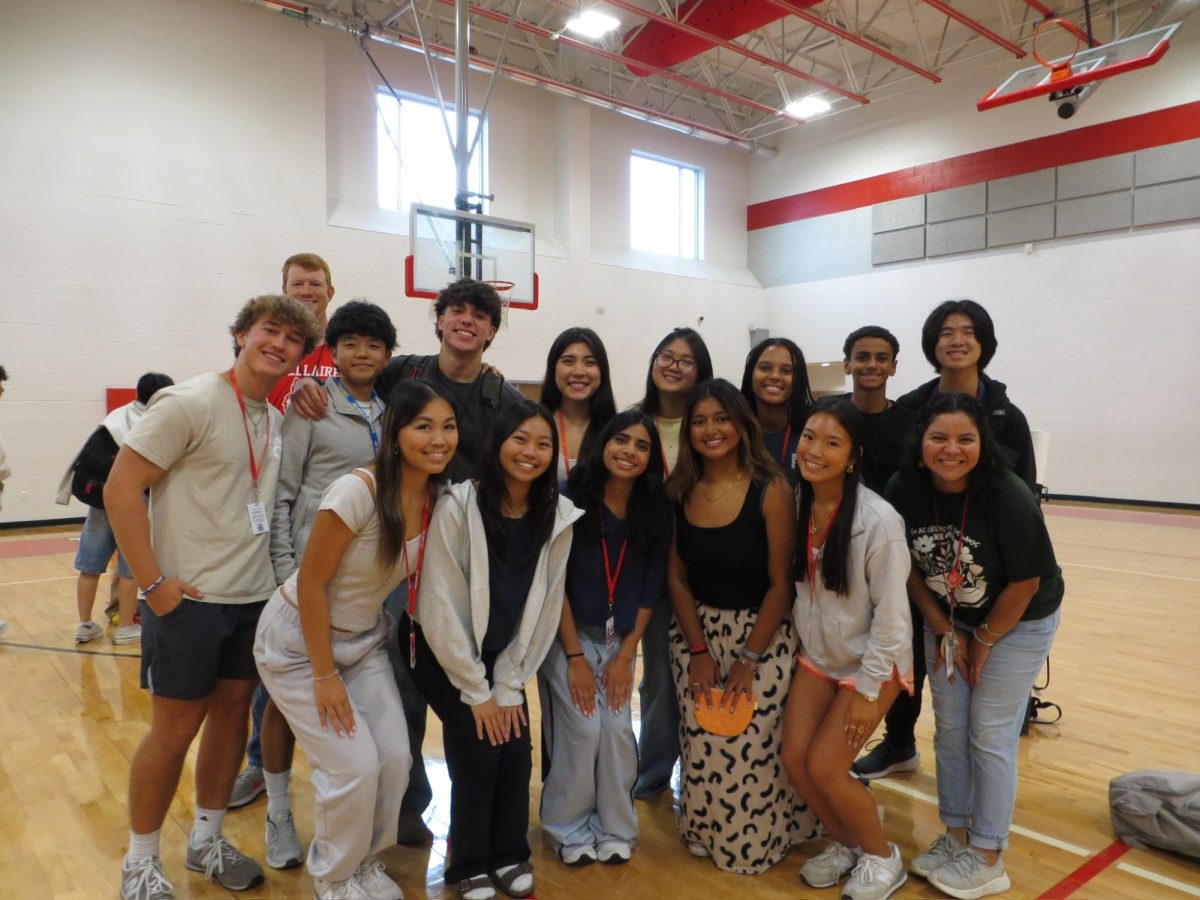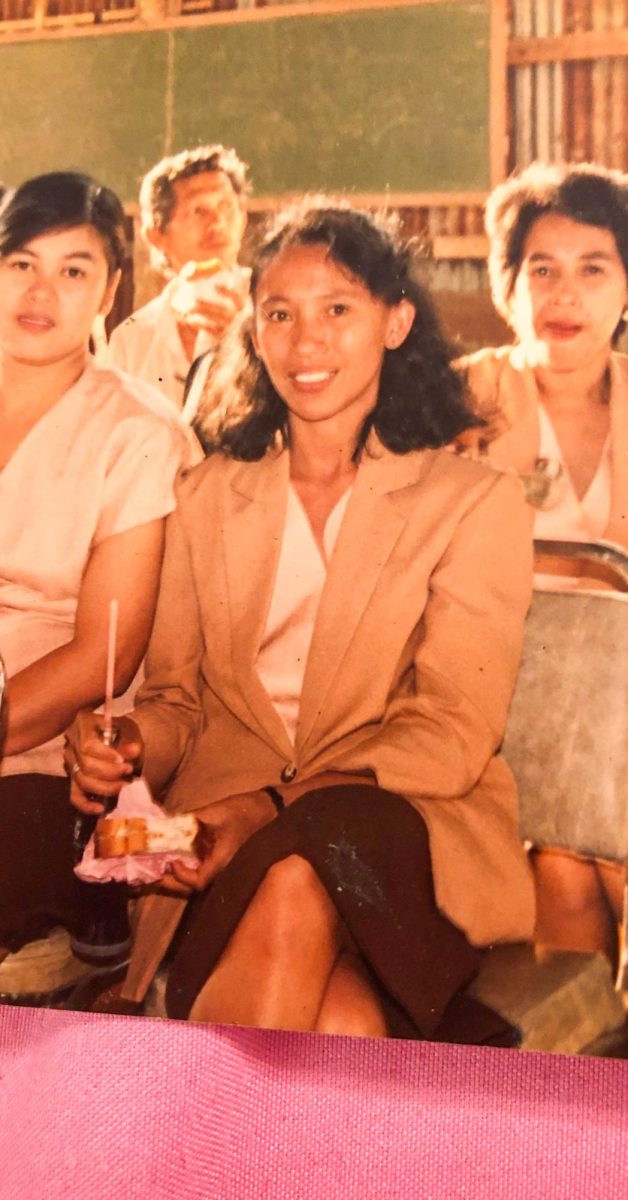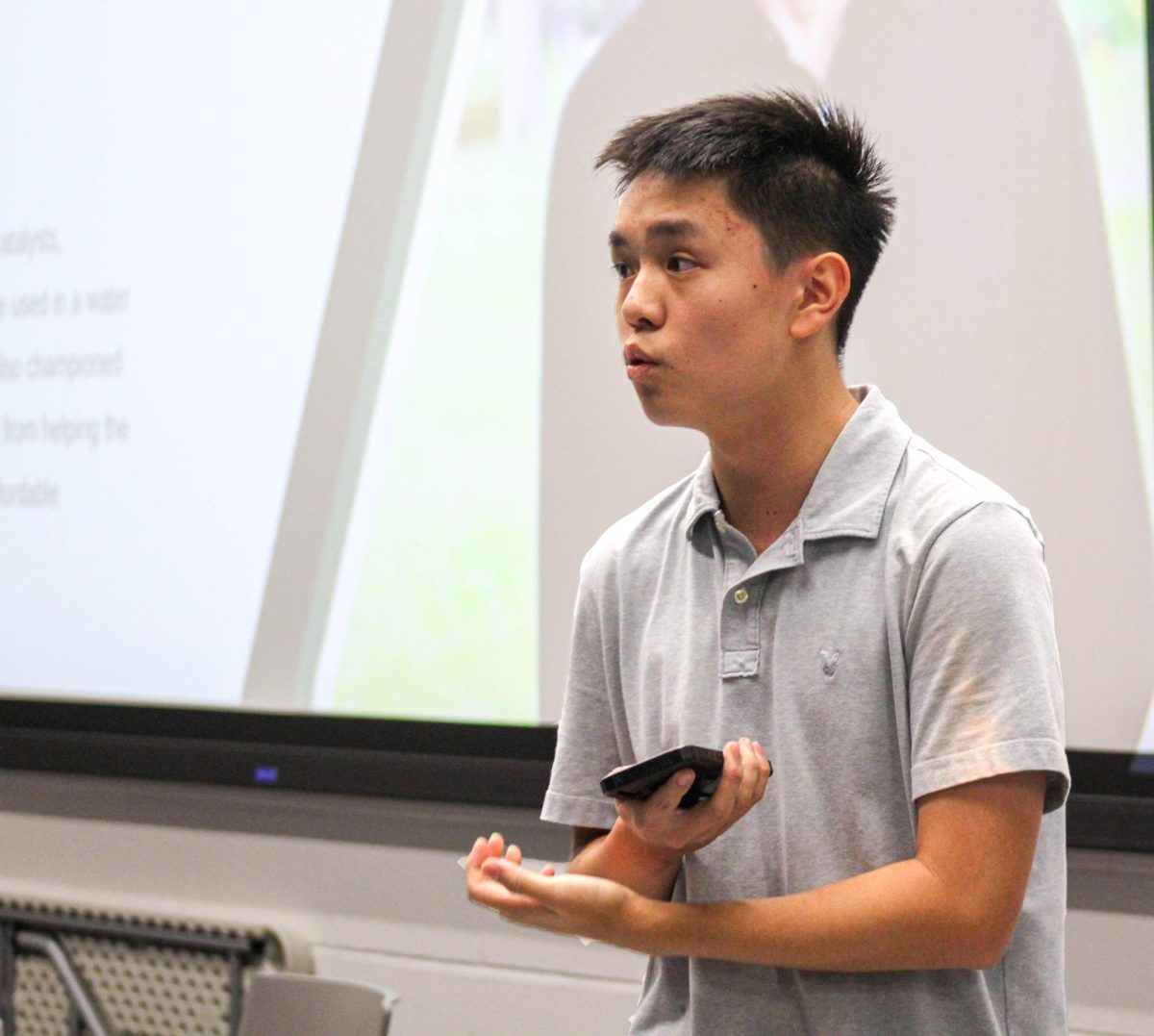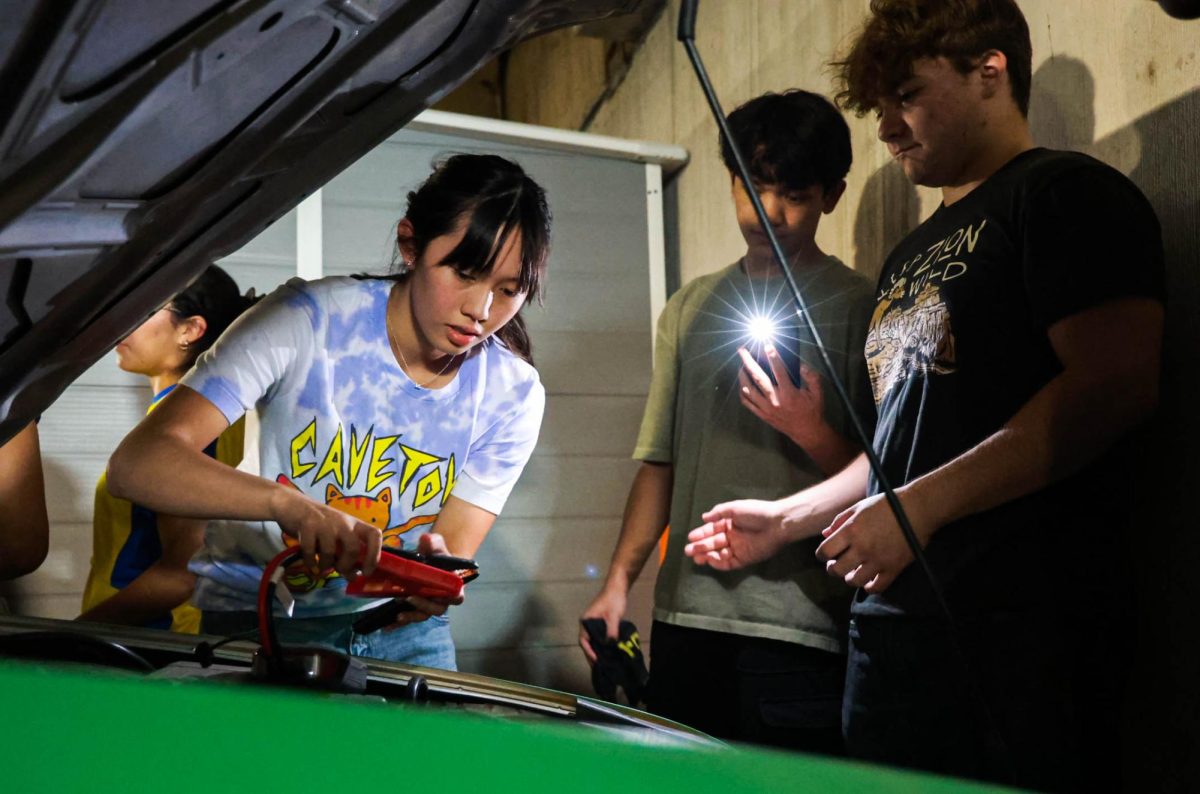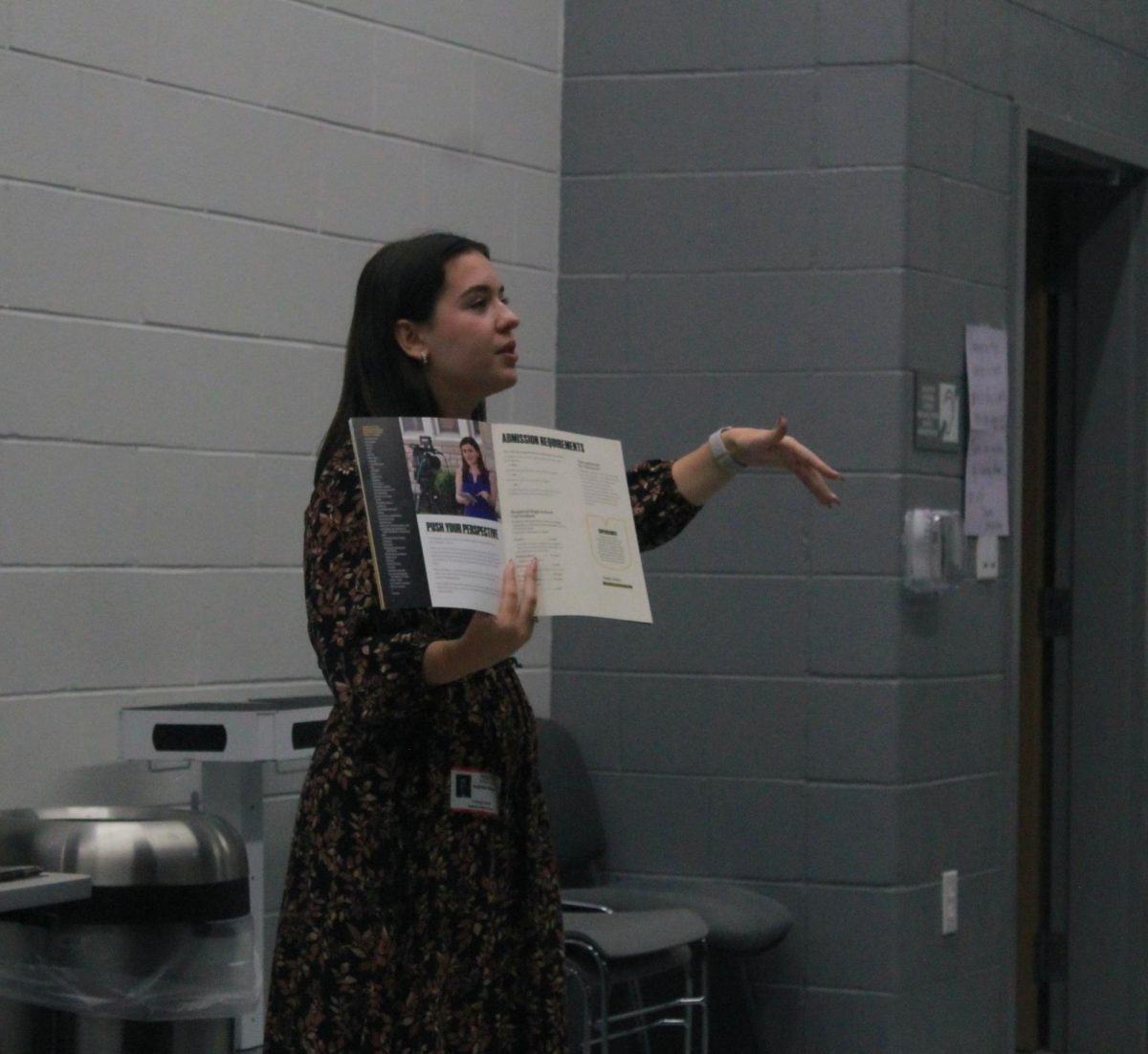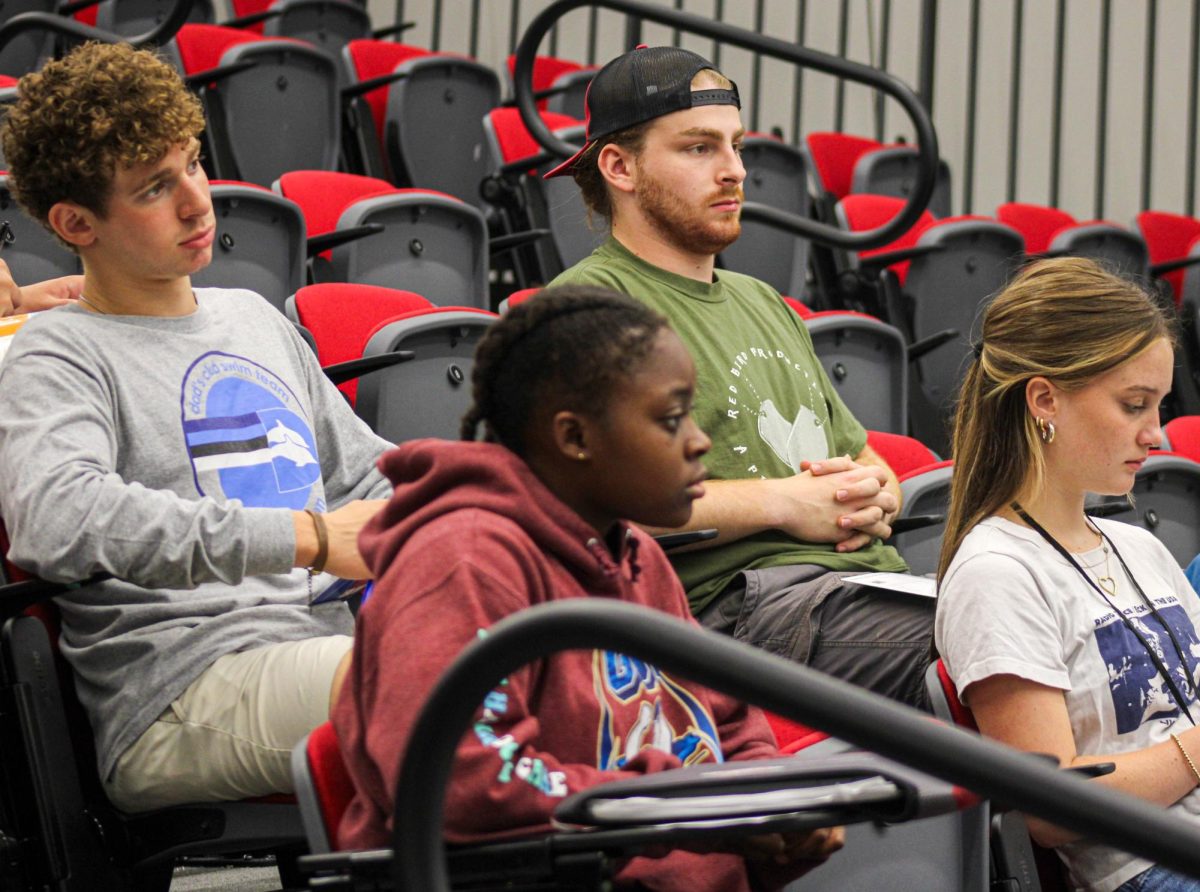When House Bill 1481, prohibiting student use of personal communication devices on campus during school hours, took effect on June 20, students were disconnected from a device that offered many uses, ranging from communication, information and entertainment.
With cellphones now tucked away, students have turned to other forms of technology to stay plugged in during the school day.
In a recent Three Penny Press poll with 129 students surveyed, approximately 45% of students said they use digital cameras at school since the start of the phone ban. Another 9% said they use other technology to replace their phones.
For sophomore Morgan Foster, the transition was frustrating at first. Foster originally disliked the ban due to not being able to listen to music at school.
“I used my phone very often before the school ban,” Foster said. “When I found out about it through the news, I was irritated, because I was wondering how I would be able to get notifications about my club meetings and sport events.”
Foster now uses her Garmin watch to track her runs and health.
“It feels like a smaller version of a phone that can almost do anything,” Foster said. “I’ll keep using it even if the phone ban changes because I can track my mileage when running.”
Junior Olivia Leung initially thought the phone ban was “crazy” and that the school “shouldn’t be allowed to do this.” Leung was worried that it would be harder to communicate with friends and family, but has now adjusted to the omission of cellphones.
“In some ways, the phone ban has been kind of nice where my friend group is more connected through conversation,” Leung said. “I also like how we are kind of forced to talk to new people in class rather than just running away to our phones.”
Leung has found the ban to be an opportunity to revive old technology. She started bringing a digital camera to school after the ban took effect.
“I first started using my digital camera just to use when I went out with friends, but I realized I could use it for anything and started bringing it to school daily for capturing moments during clubs and sometimes just for fun with friends,” Leung said.
Leung, a historian for the Fellowship of Christian Athletes, uses her digital camera twice a week for club photos.
“I brought the idea to use digital cameras rather than chromebooks to take club photos to maintain good quality and really show our club clearly,” Leung said.
Leung also uses her digital camera as an officer of Save the Children and Asian American Association. She has noticed others using similar devices for yearbook and club documentation.
“Using a digital camera is definitely way different than using my phone [as there are] not as many things to distract or occupy us with,” Leung said. “It allows students to become more outgoing and sociable rather than constantly being on our phones.”
Sophomore Elliot Elam found out about the ban through his mother, Jennifer Elam, who teaches Pre-AP English at Bellaire.
“I’ve found I use my phone less frequently, both at home and at school,” Elam said. “It’s a little ridiculous, especially because it’s in effect during lunch, but I do believe it reduces cheating and increases attention in class.”
Some students have turned to other technology for specific needs, like band student and senior Jacob Schwartz. Schwartz uses a physical tuner and a JBL speaker to replace music apps that were once available on his phone.
“I was initially frustrated at lunch and it hindered my practice abilities in band,” Schwartz said. “But now I use a physical tuner to help me and others stay in tune and a speaker as a drone or metronome.”
Schwartz said that while the replacement setup is less convenient, it has pushed him to adapt to the absence of cellphones.
“School life is better in some ways, with more social interactions and more innovation to improve my practice routine on trumpet at school, but also worse in others, such as it being harder to find friends at lunch,” Schwartz said.
Despite the frustrations some students faced at first, some say the ban has brought unexpected benefits, even as they adjust to life without phones.
“I think it is having a mostly positive impact because I find myself talking with friends more, and there is no social pressure to be on my phone when walking alone in the halls,” Schwartz said.


